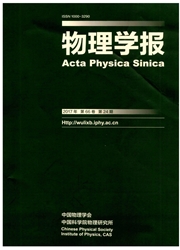

 中文摘要:
中文摘要:
仿生微流控技术将仿生结构设计应用到微流体装置中,具有很强的学科交叉性.本文提出了通过仿生手段突破微流控的技术瓶颈,从而提高微流控器件的抗污染性能,告别单一功能的微流控系统应用的局限性,实现微尺度下通道的智能化及动态环境变化下的高适应性等.本文提出了仿生微流控的概念,重点介绍了仿生微流控在器件抗污染、器件智能化、生物学和医药方面的最新研究进展,从仿生设计导入应用前景,并探讨了所涉及的物理问题和关键技术,以期为智能微流控芯片的设计开发和应用提供新思路,并为软物质的开发应用、多功能型智能化仿生器件的设计、制备及应用提供参考.
 英文摘要:
英文摘要:
Biomimetic microfluidic systemscan be obtained through multidisciplinary approaches by using bio-inspired structural and functional designsfor the microfluidic devices. This review mainly focuseson the concept of biomimetic microfluidics to improve the properties of microfluidic systemsfor breaking through the bottlenecks of the current microfluidic devices, such as antifoulingsmart, anddynamic response insidethe microchannelsunder different environments. In addition, here we show the current research progress of biomimetic microfluidic systems in applications related to antifouling and smart devices, and biomedical research. The review discusses both physical theories and critical technologies in the biomimetic microfluidics, from biomimetic design to real-world applications, so as to offer new ideas for the design and application of smart microfluidics, and the authors hope this review will inspire the active interest of many scientists in the area of the development and application of soft matter, and multi-functional and smart biomimetic devices.
 同期刊论文项目
同期刊论文项目
 同项目期刊论文
同项目期刊论文
 期刊信息
期刊信息
